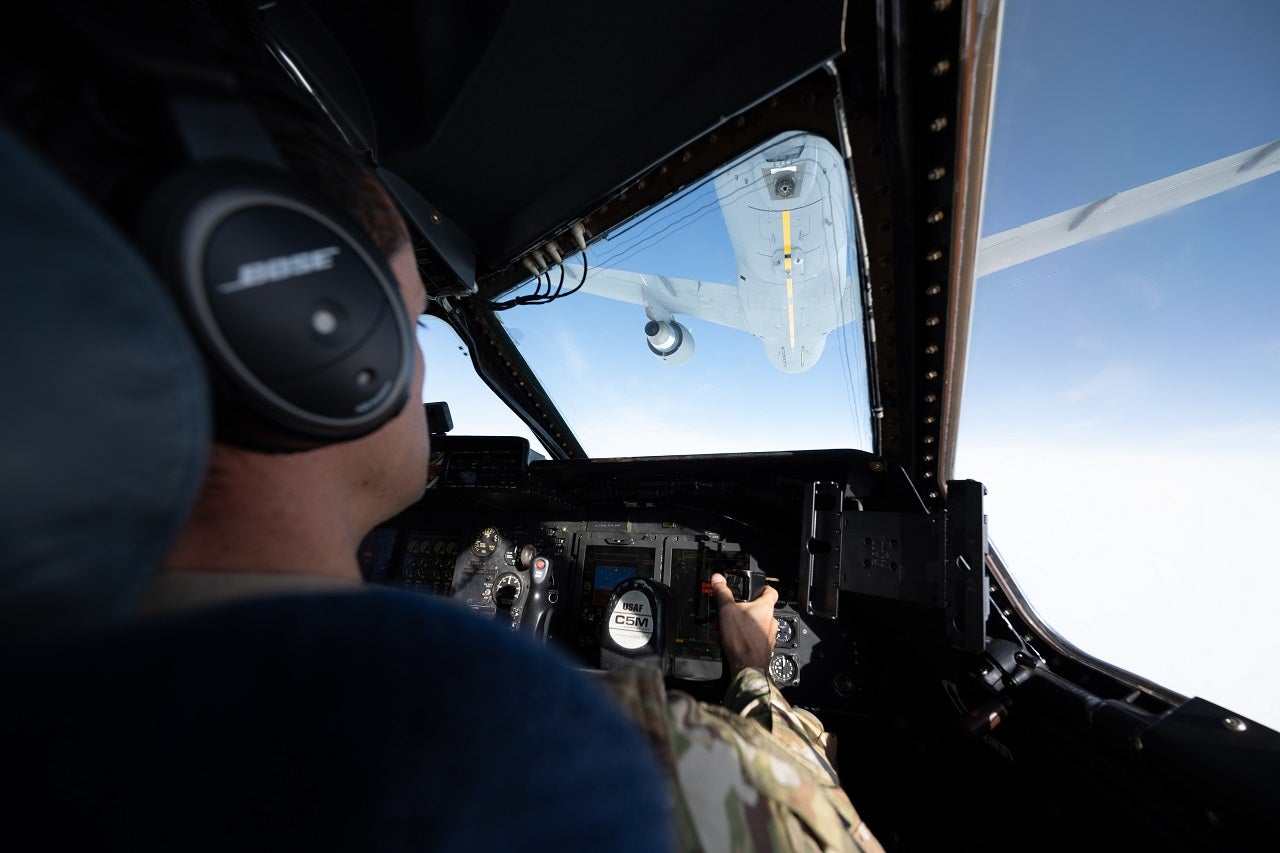
The US Air Force’s (USAF) KC-46A Pegasus aerial refuelling aircraft has achieved a fourth Interim Capability Release (ICR) decision milestone.
With this approval, the tanker will be able to refuel the AC-130J Ghostrider, C-5M Super Galaxy, HC-130J Combat King II, MC-130J Commando II and E-3G Sentry during missions tasked by the US Transportation Command (USTRANSCOM).
The move means that the KC-46 can now refuel nearly 70% of the receiving aircraft requiring in-flight refuelling.
In July, the US Air Mobility Command (AMC) approved the KC-46A Pegasus tanker’s Centerline Drogue System mission set as the first ICR.
The second ICR decision approved the KC-46A to refuel the B-52, C-17 and other KC-46 aircraft using its boom in August while the third decision in October allowed the KC-46A to refuel all variants of the F-15 and F-16.
AMC Deputy Aircraft Chief and Logistics Requirements Division and KC-46A Cross-Functional Team deputy lead lieutenant colonel Kevin White said: “The KC-46A can now support nearly 70% of all receiver aircraft that request air refuelling support from USTRANSCOM.
“In addition, we are putting the Pegasus against our highest priority missions such as direct Presidential support.”
The AMC noted that the ICR plan enables Pegasus to take over operational taskings conducted by the KC-135 Stratotanker and KC-10 Extender tankers.
The KC-46A continues to showcase its operational capabilities irrespective of the existing restrictions and deficiencies.
Pegasus has so far completed more than 6,000 missions, offloading nearly 37.8 million pounds of fuel.



